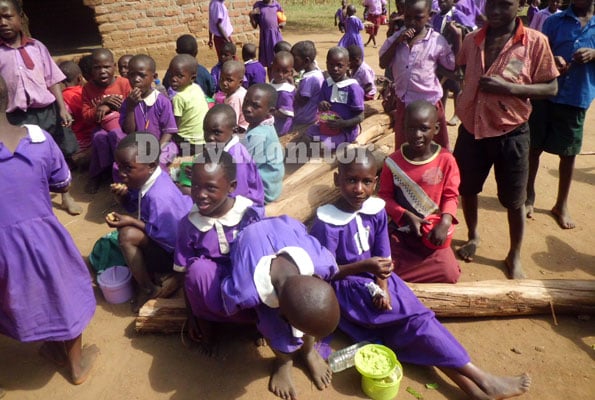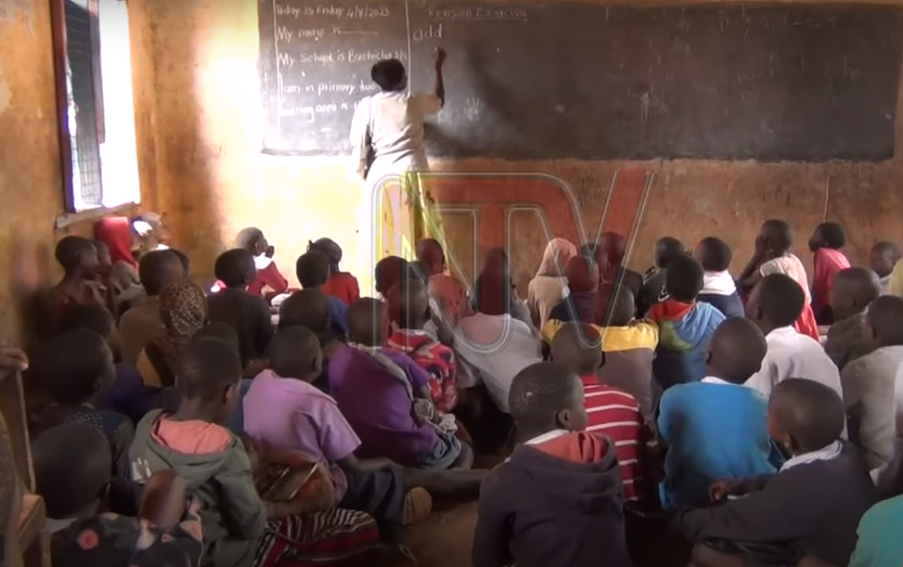7 million Ugandans haven’t been to school - census

Pupils of Good Hope Mixed Day and Boarding Primary School enjoy packed food at break time. Even with a remarkable steady increase in literacy rates, nearly seven million Ugandans, representing 19.3 per cent of the total population, have never been to school. File photo
Kampala- Even with a remarkable steady increase in literacy rates, nearly seven million Ugandans, representing 19.3 per cent of the total population, have never been to school.
Another 40 per cent of the population that is supposed to be in school, left before completion.
According to the 2014 National Population and Housing Census, 12.5 per cent, representing one in every 10 children of primary school-going age (6-12 years), had never been to school even with free education under Universal Primary Education (UPE) and Universal Secondary Education (USE), the twin- government programmes introduced in 1997 and 2007 respectively.
Out of 5,259,200 secondary school- going students of between 13 and 18 years, more than one million, representing 22 per cent had left school through unclear circumstances yet 4.1 per cent had never been to school. The percentage of those who have never been to school is, however, higher among Ugandans aged 60 years and above, standing at 37.5 per cent of the total population.
The demographers who talked to Daily Monitor last week attributed the problem to government failure to monitor what goes on in schools, poverty, child labour and child marriages particularly in the countryside. The Census report found that 87 per cent (more than 6.4 million) of the boys and girls of primary school-going age (6-12 years) were attending school.
The UPE and USE are seen as main tools for achieving the economic, social and political objectives outlined in the Government White Paper on education. The National Development Plan II (2015-2020) also emphasises education as an aspect of human capital development.
Dr Ben Mungyereza, the executive director Uganda Bureau of Statistics, has proposed that parents whose children are not going to school yet there is UPE and USE should be arrested. He said this at the launch of the Census report at Kampala Serena Hotel last week.
About 74 per cent of the population are literate, higher than about 70 per cent 10 years ago. However, literacy among females was lower (68 per cent) than for males (77 per cent). Literacy is also higher in urban areas (85.9 per cent) than rural areas (68.3 per cent). However, the report indicates that in the last ten years, literacy rates have marginally declined in urban and rural areas.
Literacy has also increased among females from 58.9 per cent to 62.8 per cent because of the government emphasis on the education of the girl-child. However, among males, literacy dropped from 91.5 per cent to now 83.6 per cent as a result of poverty and increased number of orphans in the country.
At least 8.04 per cent of all children below 18 years are orphaned. There are more female orphans (7.9 per cent) than males and the number of orphans (8.17 per cent) in urban and rural areas is almost the same at 8 per cent.
bagalaug.nationmedia.com




